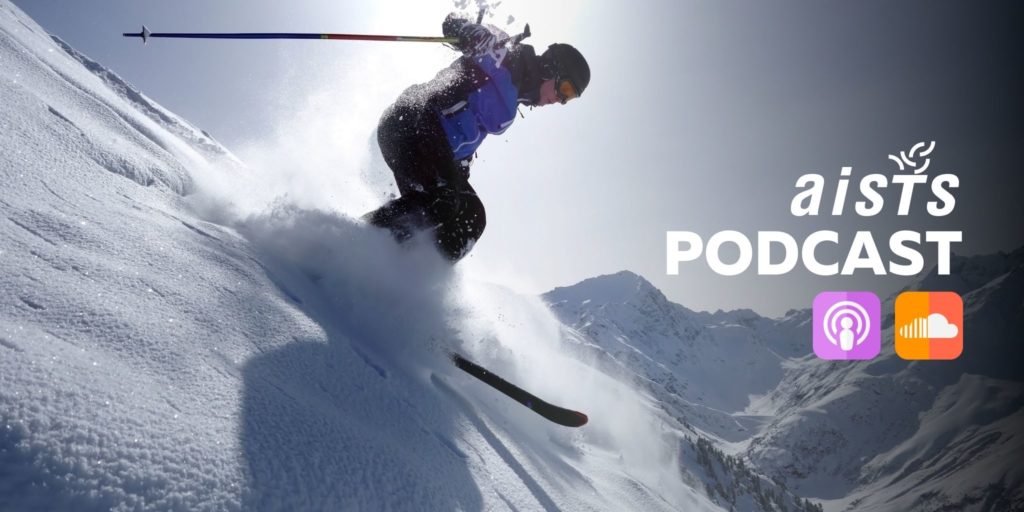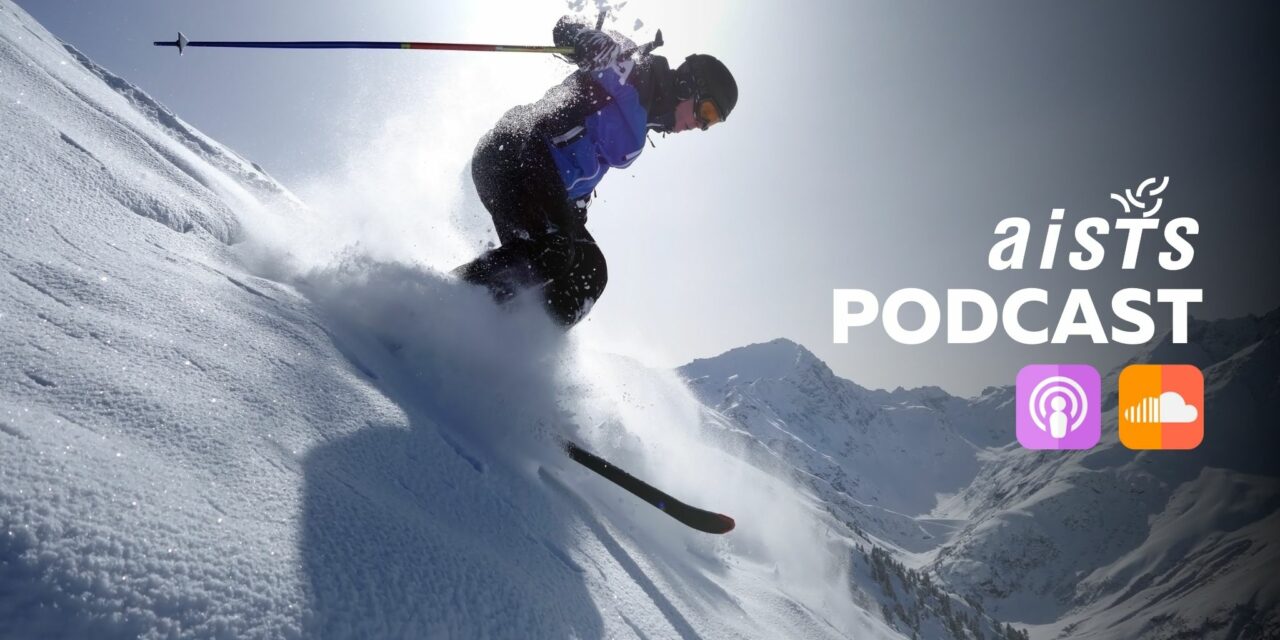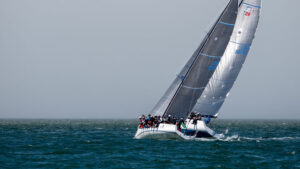
AISTS SPORT MEDICINE PODCAST #59
PRO ATHLETES COMPETING IN TWO SPORTS, POSITIVE OR NEGATIVE FOR PERFORMANCE?
How does multisport skills help you in your specialist sport? This podcast shares key learnings from top athletes competing in multisport events and how this can be complementary and beneficial to your specialized sport. Learn how you can have fun with more than one sport.
In this AISTS Sport Medicine podcast, AISTS Class of 2019 Maria Peredo SILVA, Enrico RETTA discuss their experience in multisport.
Maria: Hello everyone. Welcome to the AISTS Medicine Module Podcast! Today we will discuss the topic of elite athletes who compete in two sports and if it is positive or negative for their performance. Does our mindset need to change regarding specialisation in sports? We want to start the conversation about it!
Enrico: But, before we begin, we would like to introduce ourselves. I’m Enrico Retta, a former alpine skiing athlete and current ski instructor
Maria: And I’m Maria Peredo Silva, a former international swimmer.
Enrico: Neither of us participated in two sports simultaneously, but maybe it could have helped us perform better. In my case, I started doing alpine ski when I was a child but since it is a winter sport, it has always been difficult to practice it all year long. Actually, out of the ski season, I always practised different sports at amateur level.
For example, football improved my aerobic resistance or karate and kickboxing helped me boost my strength and increase my agility. Anyway, I could say that such a variety in exercises helped me to avoid any problems related to overtraining and burnouts.
Because really I remember: every end of the season I was looking forward to starting again!
And Maria, what is your story?
Maria: From what I hear from your story you were a really multi-sport athlete! My case was a little bit different, I retired from swimming several years ago and not until later started participating in 10 kilometer races, I did a triathlon, I got into yoga. And having now experienced other sports I really believe that if I had had the experience of training and perhaps even competing in other sports while swimming maybe I would have developed other skills and perhaps been better. I now have much better knowledge of breath because of running and yoga and definitely much more power in my legs because of cycling!
Enrico: Well actually, Maria, research shows you might be right, developing other skills could have made us better athletes. Scientific studies say that there is little evidence to suggest that training must be intensive in a single sport.
Maria: So it seems that as long as you dedicate enough time to training skills that are important for your main sport, you don’t really need to do or like to have all your training to be focused on that. And I think you might even have the potential benefit of succeeding in more than one sport and that is great. I know I would have wanted to try that!
Enrico: Me too! Yes exactly! It is very easy to believe in specialisation because it is what we have always been taught works best, but the reality seems to be different.
Maria: I know, its very interesting to see that! And also to see examples that it has actually happened several times in the history of sport and in many different disciplines. We could take the example that got us interested in this topic: Ester Ledecka in the Pyeongchang Winter Olympics in 2018. I know you are a fan, so can you tell us more about her story?
Enrico: Yes, thank you Maria, I think you had a great example, not only because I am a fan!
Ester Ledecka is a 23 years old Athlete from Cezch Republic and she decided to compete in both snowboard and alpine skiing competitions, even though coaches asked her to choose only one sport. And you know what? She changed the coaches!!!
And she made the right call becoming the first athlete in history to win two gold medals in two different sports, Snowboard Parallel Slalom and Alpine skiing SuperG races.
Maria: And also it is not only her! There are many more examples, like the Italian Maria Canins, who competed in both cross-country skiing and road cycling. She won 15 Italian Championships and 10 times the Marcialonga in cross-country skiing and twice the female Tour de France in cycling. Oh and also once the Giro D’Italia.
Enrico: And more recently, we have Sofia Goggia, another alpine skier, who decided to change her summer physical preparation switching from regular gym to triathlon training and competition with great success. There is also the new French Open Champion Ashleigh Barty who obviously plays tennis, but has also been super successful in Cricket, participating in the Women’s Big Bash.
Maria: Yes! The story of Ashleigh Barty is super impressive! But I was thinking… do they have real benefits doing different sports or physical preparation or maybe it’s just a coincidence and they are just brilliant athletes?
Enrico: Well, I think that is… that is a good point, and I can tell you that is not just a case! Ester Ledecka said that she obtains positive effects from both of the disciplines. Alpine skiing improves her reaction time and it becomes really helpful when she switches from ski to snowboarding. At the same time, snowboarding helped her to learn more about race strategy. She has also said she improved her balance because on snowboard you surf only on one edge!
Maria: So Ledecka essentially became a better athlete because she chose to do two sports.
Enrico: Yes exactly! And I’m wondering if there are any additional benefits, on top of technical abilities?
Maria: Well, I know there is not a lot of research on athletes that compete in two sports, but there is definitely a lot that has been done regarding specialisation vs diversification, especially for young athletes. It is known that practising more than one sport can help with motivation, with mental health in general, and it can also reduce the potential for injury, for stress for, burnout, basically just what happened to you when you were training off-season.
Enrico: Yeah yeah that is right, plus improving or developing skills that can help the other sport. And maybe potentially being able to extend your career as an elite athlete. So then, I guess our message is that our mindset does need to change regarding specialisation in sports. It’s a matter of at least opening up our minds to the idea that being excellent in more than one sport is definitely possible.
Maria: I think that is a great message to take away. Thank you all for listening and since you could be an athlete, a coach, a parent or simply somebody that is passionate about sports we would like to leave you with a quote from NYT that really stuck with us, it says: “If there is a lesson to be learned from Ledecka’s success, it is that the drive to specialise early, the better to achieve fame and fortune in sport, should be redefined.”
Enrico: Thank you and until our next AISTS Medicine Module Podcast!
You can find more AISTS Sport Medicine podcast on our Soundcloud channel or on the Apple Podcast app. To learn more about the AISTS Master of Advanced Studies in Sport Administration and Technology, visit https://aists.org/education/masters-degree/
Recent articles





